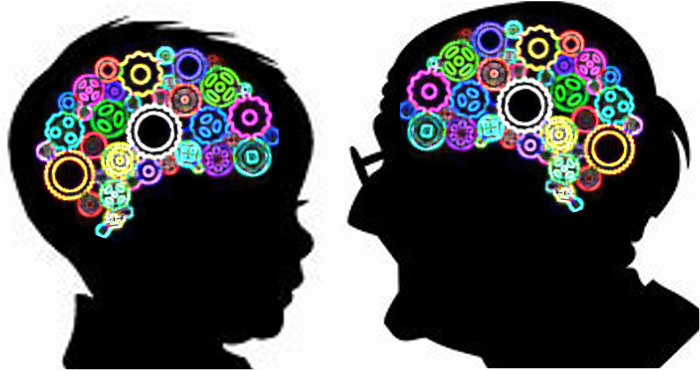Project Background
Developmental research is often grounded in the notion that young adults are the model of optimal functioning and children are thus conceptualized as developing systems progressing towards this ideal state. Although this framework has its merits, it can also be considered incomplete, as there are instances in which children outperform young adults, and in the learning of novel motor skills in particular. A central premise of this research is that systematic investigations into the behavioral and neural processes underlying these childhood advantages offer a unique opportunity to increase our understanding of the developing brain.
This research adopts the acquisition of novel movement sequences as a model to investigate the behavioral and neural underpinnings of developmental advantages in motor learning behaviors. Specifically, we combine unique manipulations of motor learning paradigms with brain imaging approaches (i.e., functional magnetic resonance imaging) to answer the question: What is unique about the developing brain that allows children to outperform adults in these specific instances?
In addition to addressing a fundamental research question of high importance, this research will serve as a foundation for future examinations into the neural underpinnings of motor learning-related developmental disorders (e.g., dyspraxia).
Student Role
Joining the Lifespan Motor Neuroscience Lab at the University of Utah would provide the student the opportunity to contribute to two experiments. First, the student will work closely with the Principal Investigator and graduate students on a project that employs functional brain imaging approaches to reveal the neural underpinnings of childhood advantages in motor learning-related behaviors. This project then functions to familiarize the student to the world of neuroimaging. Second, and to afford the opportunity for the student to take the first steps to becoming an independent researcher, we aim for the student to take the lead – albeit in close collaboration with the PI and graduate students - on an experiment that employs a web-based data acquisition protocol to investigate childhood advantages in motor learning at the behavioral level. Contributing to these two experiments then provides the student with the opportunity to work towards independence via a behavioral investigation while also introducing them to more complex research methodologies (i.e., brain imaging). Direct contributions to these experiments will be supplemented by activities such as reading literature, gaining experience in relevant software for data processing and trainings in research ethics and good clinical practices.
Student Learning Outcomes and Benefits
This undergraduate research opportunity will provide a student with extensive experience in human subjects research in the domain of motor neuroscience. Specifically, the student will:
- Receive training in research ethics and good clinical practices in human subjects research.
- Learn how to interact with and acquire data from child and adult participants.
- Learn the foundations of scripting in software commonly used for data processing and statistical analyses (e.g., MATLAB).
- Learn basic principles of magnetic resonance imaging (MRI) approaches.
- Become familiar with procedures for the acquisition of MRI data.
- Learn foundations of various neuroimaging analytical approaches.
- Gain experience with project/results presentations and scientific writing.
These outcomes and experiences offer an ideal mix of research domain-general skills (i.e., ethics, scripting, writing, presentation) and domain-specific skills (i.e., acquisition and analyses of motor learning and brain imaging data). This will ultimately provide the student with an excellent foundation to pursue graduate training and/or a career in science, and in the movement and cognitive sciences in particular.

Bradley King
As a mentor, I aim to find an appropriate balance between providing hands-on guidance to help students achieve their goals and giving enough space for students to make progress towards becoming independent researchers. This is certainly a delicate balancing act, but my previous experiences have taught me that this can be achieved via effective and honest communication between mentor and mentee. As part of this undergraduate research opportunity, students can expect:
- 1-on-1 meetings (mix of online and face-to-face) to discuss the student’s research interests, goals for this program, avenues to facilitate attainment of these goals and evaluation of progress;
- integration within a team of researchers in order to learn from multiple individuals with distinct skill sets and previous experiences;
- honest and constructive feedback;
- direct instruction outlining the student’s responsibilities; and,
- the necessary support for the student to not only complete the components of SPUR but take full advantage of the program’s offerings
